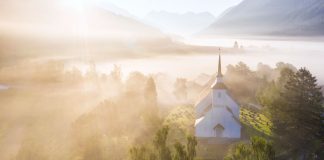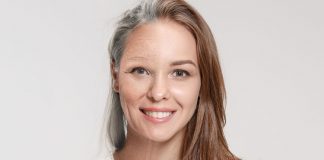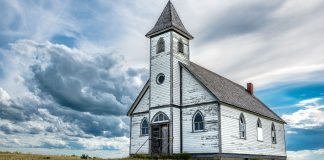What is the Church?
What do you think of when you hear the word church? Perhaps your mind conjures up images of ancient cathedrals, resplendent with gothic spires, stained glass windows, and vaulted ceilings.
The kindness that wipes away the effects of daily stress
Daily stress is a good excuse to avoid other people's needs, but this choice is a double loss. The kindness we display to make other people's days better is a very strong antidote to the high level of stress we experience daily.
Why do bad things happen to good people?
The question in the title is a protest which expresses a fair amount of suspicion towards God. It is a barely concealed condemnation of God and His actions, the strange rebellion of a world that sees itself as morally superior to God. People forget Scripture's words in the book of Job: Beware lest wrath entice you into scoffing (Job 36:18, RSV).
The last tear
I found myself at the airport, waiting to board my flight. At one point, the speakers announced the names of four people who were expected at a nearby boarding gate. Their names were called three times. Eventually, the airport staff withdrew, and the door closed behind them. Shortly afterward, a modest-looking family appeared. The confusion in their eyes, as they glanced left and...
Hungry for youth and immortality
Crouched in the trenches of the horror of old age, modern individuals no longer wish to recover anything from the natural ageing process that their ancestors practised with such serenity. On the contrary, the first signs of physical decline become the raw material for a wide range of efforts (from picturesque to sickly) to forge a youth that the mirror refuses to restore.
The miracle of common healing
Religious people believe in the positive results of their faith in God. There is a common expectation that faithful people will lead good, healthy lives, while bad people will experience trouble, illness and punishments. The reality, however, is much more complex and often contradicts such expectations. How useful is religious faith when it comes to health, or the healing of the sick?
Heaven won’t be boring. Here’s why.
Forget floating on clouds—discover the thrilling, purposeful eternity God has planned for you.
An unexpected return, the premise for missing the meeting with Christ
How important is the second coming of Jesus Christ in traditional Christianity?
Cut from a different cloth
When I look at the lives of some people, I can't help but wonder if they are cut from a different cloth to most of us. Their courage in the face of challenges, their resilience, their vision and their achievements are so impressive that my imagination wonders what the world would look like if their passion were multiplied.
Faith’s destiny in the 21st century
British physicist and author Paul Davies predicts a future in which the need for spiritual guidance will be stronger than ever, but, at the same time, believes that “any religion that refuses to embrace scientific discovery is unlikely to survive to the 22nd century”.
Are we wired for altruism?
She donated a kidney to a stranger without expecting anything in return. This is the story of a graphic artist whose sole motivation was altruism. Such cases have led researchers to question whether altruism might be an inherent trait in the human brain.
In search of the real Jesus
The tempest in our teacup, the controversy over religious education, has stirred up anger and debate not only about the fairness of filling in a form, but also about the role and purpose of religion in children's lives.
Facing rejection: a hard-fought battle
It has been more than ten years since my first job interview ended with the classic: You did a great job, but we have chosen someone else. Since this memorable moment, other closed doors have followed: employers rejecting my application, people not sharing my interests, groups giving me the feeling of not being accepted.
Good luck, bad luck…and cancer
Many had not yet finished clearing away the leftovers from the New Year's Eve table, almost no one had returned to work, politics was still numb and journalists yawned with boredom because almost nothing of interest had happened on 2 January 2015.
#SELFCARE for Christians
The concept of self care—defined as the entirety of ways in which a person understands how to solve their emotional problems and manage their anxieties—has become a real movement in the past two years with an entire industry ready to make our lives easier and more comfortable. For Christians, however, this trend has proven to be quite problematic: making our lives easier is...


























